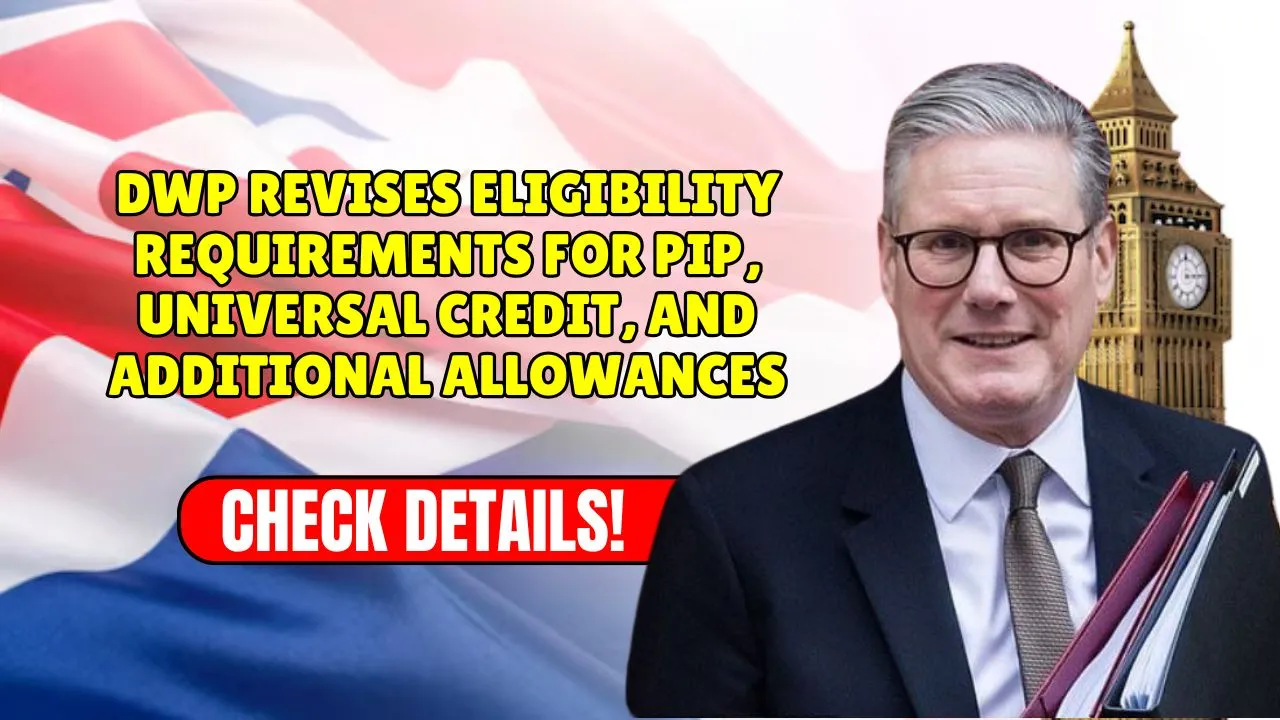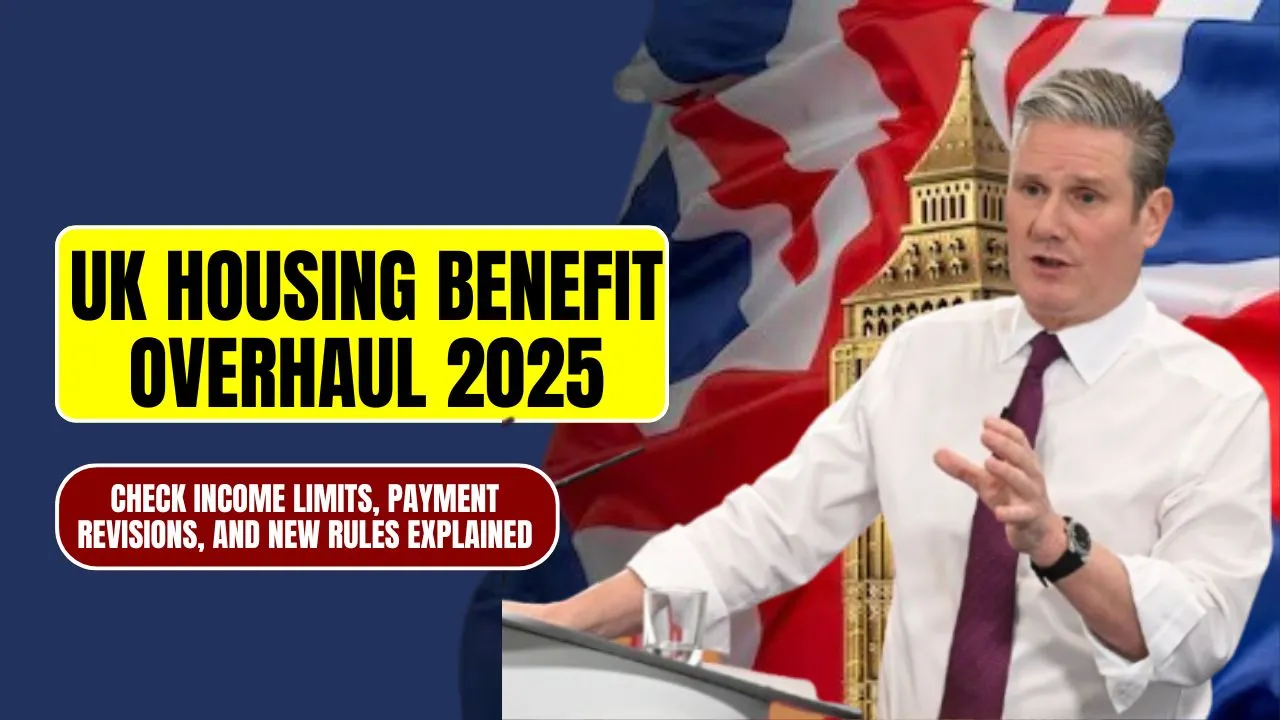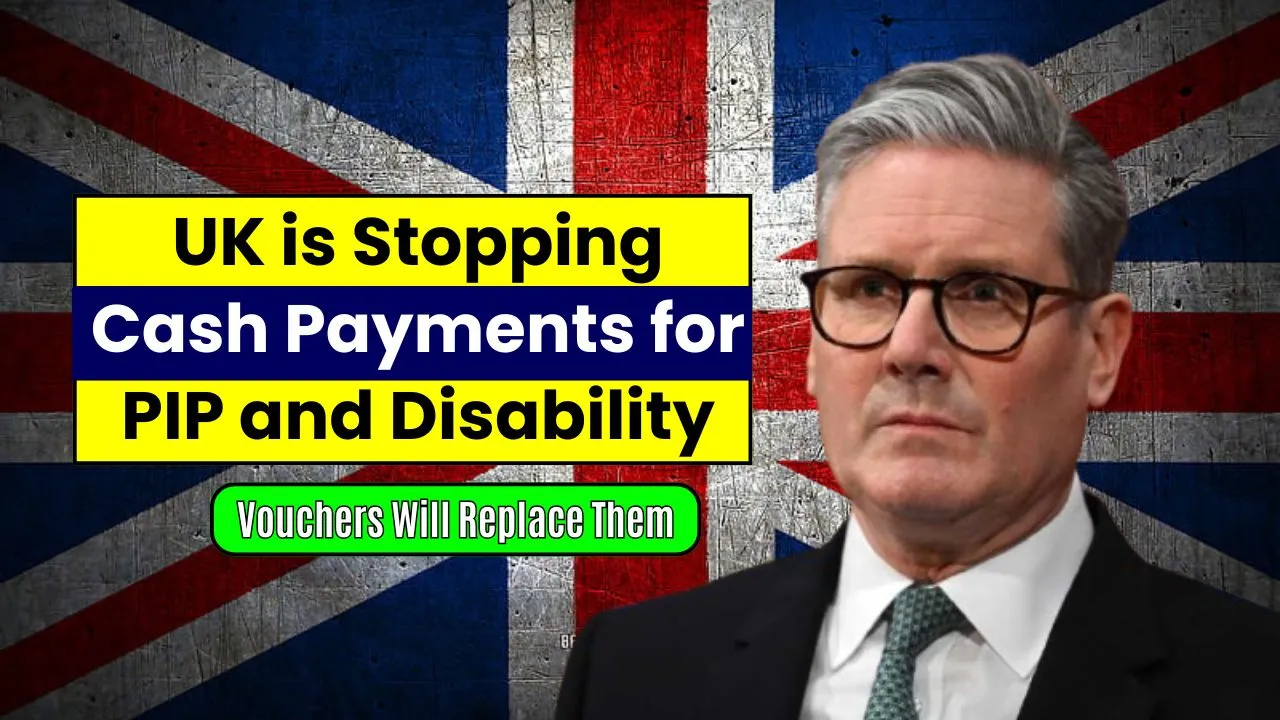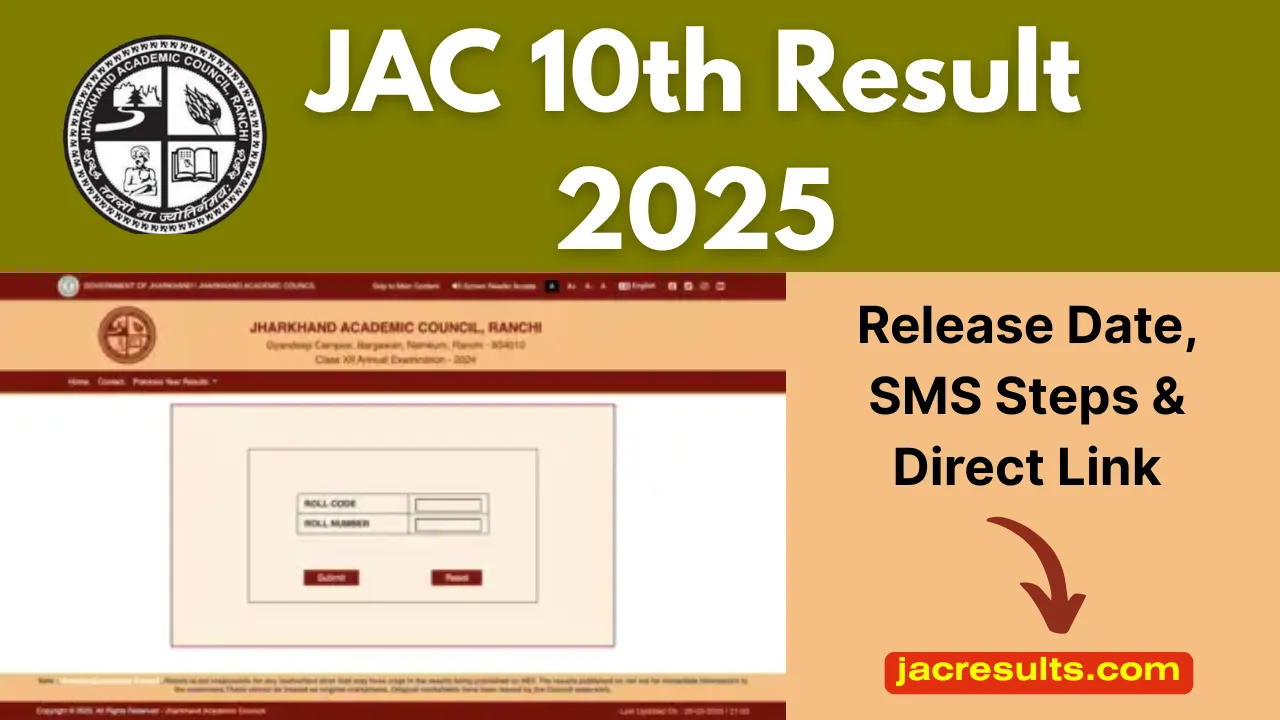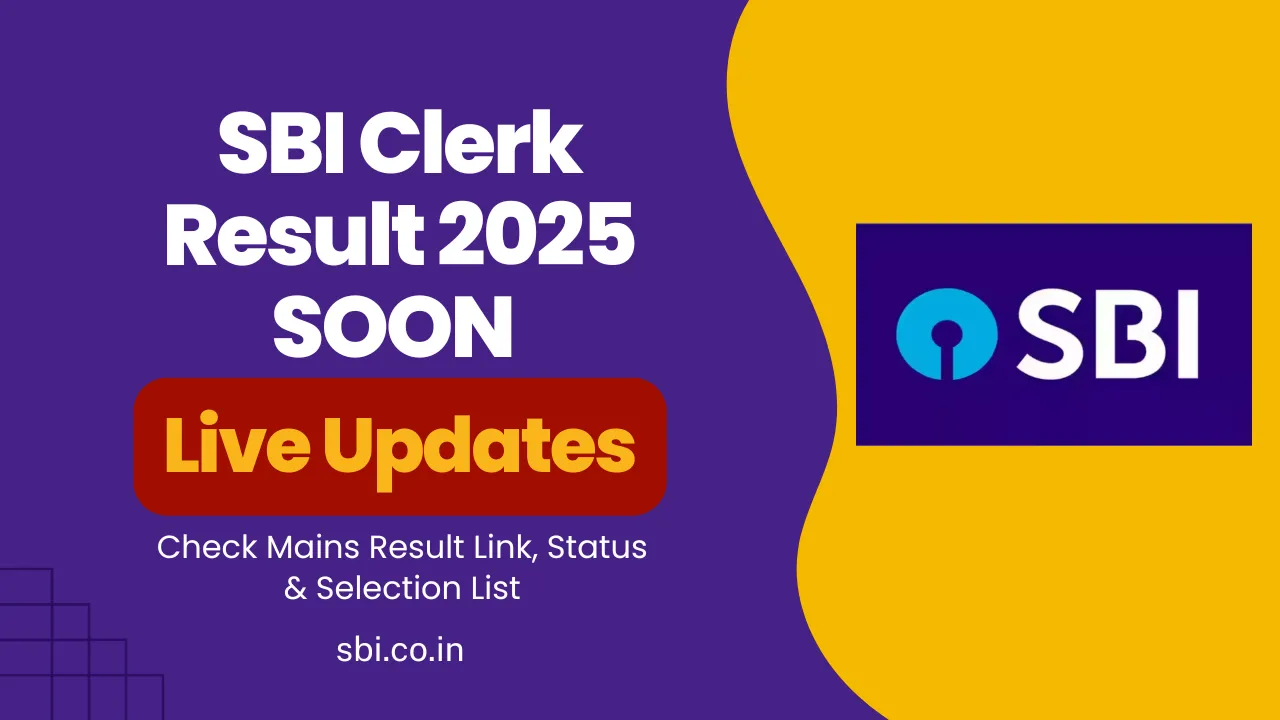DWP Eligibility Changes 2025: Starting in 2025, the UK’s Department for Work and Pensions (DWP) will begin implementing major updates to key benefits, including Personal Independence Payment (PIP), Universal Credit (UC), and other financial support schemes. These reforms are part of a long-term plan to reshape welfare policy in line with changing economic and social priorities.
The DWP eligibility changes 2025 are expected to affect millions across the UK, especially those on low income, living with long-term health issues, or nearing retirement. From updated point requirements for PIP to new Universal Credit deductions and payment structures, this guide outlines all the important changes, when they take effect, and what you should do if you’re impacted.
DWP Eligibility Changes 2025
| Change | Summary | Effective Date |
| PIP Eligibility Revision | Must score 4 points in one daily living activity plus 8 overall | November 2026 |
| Universal Credit LCWRA Payment | New claims reduced to £50/week | April 2026 |
| UC Deduction Cap | Maximum deduction reduced from 25% to 15% | April 30, 2025 |
| Winter Fuel Payment Eligibility | Limited to Pension Credit and select benefits | Winter 2024/25 |
| WCA Removal | Work Capability Assessment to be phased out | By 2028 |
| Legacy Benefit Phase-Out | All remaining legacy benefits to end | March 2026 |
| Right to Try Work Rule | Allows temporary employment trials without reassessment | From 2025 onwards |
New PIP Rules: Tighter Access Criteria
From November 2026, new criteria for Personal Independence Payment (PIP) will take effect. While the current system awards benefits based on accumulating a minimum of 8 points across multiple activities, the revised rule requires claimants to score at least 4 points in one single daily living activity—such as managing medications, preparing food, or communicating.
This change is expected to significantly affect people with mental health conditions, fluctuating illnesses, or multiple low-point impairments that previously qualified them under the combined threshold.
Example: Sarah, who has anxiety and chronic fatigue, may score 3 points each for managing medication and communication but will no longer qualify unless she scores 4 or more in one activity.
Major Updates to Universal Credit (UC)
Universal Credit remains the central benefit for working-age people in the UK. While there are increases to the base standard allowance, there are also reductions to health-related components for new applicants:
- Standard Allowance (Age 25+)
- April 2026: £98/week
- April 2029: £106/week
- April 2026: £98/week
- Limited Capability for Work and Work-Related Activity (LCWRA)
- New claims after April 2026: £50/week
- Existing claims retain the current £97/week until April 2029
- New claims after April 2026: £50/week
This change is aimed at encouraging more people to return to work, but disability advocates warn it could leave vulnerable claimants without sufficient support. If you may qualify before April 2026, applying earlier could help lock in the higher LCWRA rate.
UC Deductions: More Support for Households
From April 30, 2025, a positive change will benefit many UC recipients. The maximum deduction rate—used for repaying advance loans or debt—will reduce from 25% to 15% of the standard allowance.
Example: James receives £100/week. Under the old rules, he kept £75 after deductions. With the new rule, he keeps £85—freeing up an extra £40/month for essentials like groceries, heating, or travel.
This update is expected to improve financial stability for over 1.2 million households across the UK.
Winter Fuel Payment: Narrower Focus
Beginning winter 2024/25, the Winter Fuel Payment will no longer be given broadly to everyone aged over 66. Instead, eligibility is restricted to those on Pension Credit or other means-tested benefits.
This policy aims to direct energy assistance toward pensioners most at risk of fuel poverty. However, it also means many who previously received the payment may now be excluded. If you’re unsure, consult the official Winter Fuel Payment portal for eligibility and application information.
Phasing Out Legacy Benefits by 2026
All remaining legacy benefits—including Income Support, income-related Employment and Support Allowance (ESA), and Working Tax Credit—will be phased out by March 2026.
Current recipients will receive a Migration Notice from the DWP. Once received, you have three months to apply for Universal Credit, or risk losing your financial support. If you’re affected, contact Citizens Advice or check the DWP’s migration guide for assistance with the transition.
Work Capability Assessment (WCA) Ending by 2028
By 2028, the Work Capability Assessment (WCA) will be scrapped. Instead, the DWP will assess health-related support eligibility through PIP assessments. This change is intended to reduce administrative delays and improve fairness.
However, healthcare providers have warned that individuals with non-visible or episodic conditions could be at risk if they qualify under WCA but not under PIP rules. If you currently rely on WCA-based support, prepare for the shift and monitor your options.
Right to Try Work Without Risking Benefits
A new “Right to Try Work” policy is rolling out across Jobcentres in 2025. This rule allows benefit recipients to attempt short-term employment without triggering a full reassessment or permanent loss of benefits.
It’s especially helpful for people with:
- Mental health issues
- Neurodivergent conditions
- Long-term fluctuating illnesses
Ask your Jobcentre Plus advisor about local pilot programs and eligibility if you’re considering re-entering the workforce on a trial basis.
FAQs
1. When do these changes begin?
Most changes start between April 2025 and April 2026, with PIP revisions scheduled for November 2026.
2. Do current benefit recipients lose support?
Some updates, like LCWRA payment cuts, only affect new applicants. Others, like deductions and winter fuel rules, apply broadly.
3. Can I appeal a decision under the new rules?
Yes. You can request a mandatory reconsideration and escalate to a benefits tribunal if needed.
4. Where can I get advice on my situation?
Reach out to:
Citizens Advice
Scope
Turn2Us
Or use the EntitledTo calculator
5. Will my payments stop suddenly?
No. The DWP is introducing these changes gradually with protections for current claimants. Always read your letters carefully and meet any deadlines.
Final Thought
The DWP eligibility changes 2025 are some of the biggest welfare updates in a decade. They affect how benefits are assessed, who qualifies, and how much support is offered. While some updates offer relief—like reduced deductions—others may make it harder for new applicants to qualify.
If you’re currently receiving PIP, Universal Credit, or any legacy benefit, stay alert to letters and changes. Reach out for advice early and review your eligibility to ensure you don’t lose vital support. The transition will take time, but informed planning can help you adapt with confidence.
